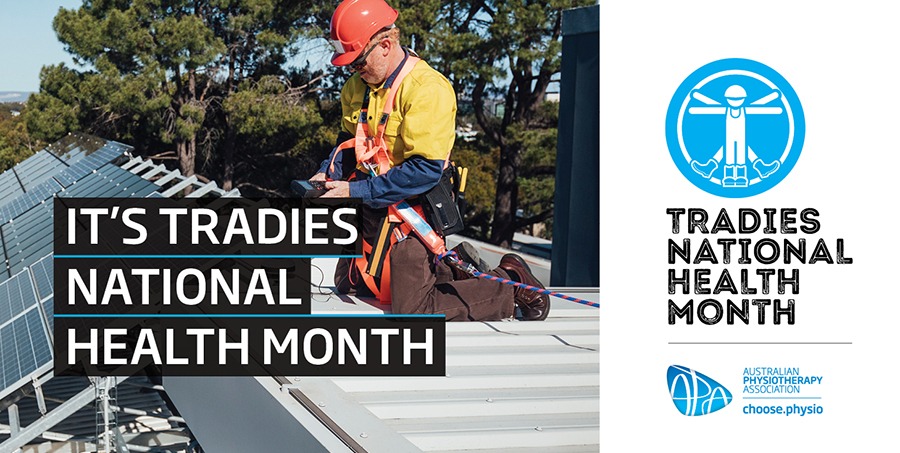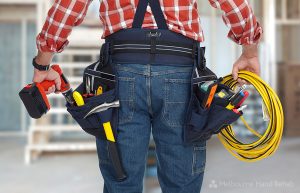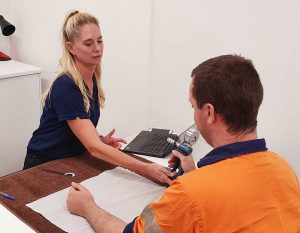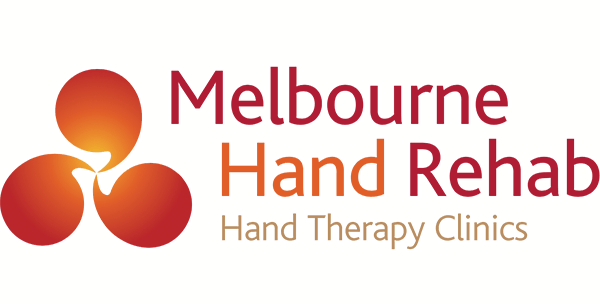
23 Aug Tips for electricians to avoid hand injuries
Tradies National Health Month: electricians hand injuries.
Where would we be without tradies? Tradies are the foundation (sorry) of our cities, providing us with well build houses to live in, places to work at, shop fronts, restaurants, cinemas, golf courses, heating, cooling, lighting, working drains and toilets, pretty much anything anything we use day to day was built, installed, and maintained by a tradie.
Electricians are the bright sparks (sorry again) who keep the lights on, keep our appliances running, keep us cool in the summer and warm in the winter. Without electricians we would have ED’s filled with a lot more average joe’s who have attempted to install a powerpoint without any experience. That being said, although sparkies are highly skilled, it is still a dangerous profession and sparkies get injured often. Now most people would now be thinking of electrocution, or falling off a ladder, or falling through a roof, and although they do happen,, there are many small, seemingly insignificant practises that can cause months off work.
I’m talking about injuries to their most utilised tools, their hands. Electricians need their hands for everything they do, from stripping wires, to installing lights, or new places to charge your phone from. These jobs utilise screwdrivers, pliers, saws, and power tools that are vital to the role and make work easier.
Did you know that these tools (if used incorrectly) can cause injury to the tendons, ligaments, and bones in your hands? It’s true! So here are 3 handy tips (i’ll stop now) to avoid hand injuries in everyday practice for electricians.

Screwdrivers
Screwdrivers are essential for an electrician for fixing items to other items such as wires to a powerpoint. If a screwdriver does not have the proper leverage, or a decent sized handle then they can become difficult to manage and cause strain in through the hand, resulting in muscle or joint pain that can be detrimental to their strength and ability to perform.
Consider investing in a small battery operated screw gun, a simple yet effective way of insuring peak hand performance. Not to be confused with a drill, which can be too powerful and cause issues of their own.
Wirestrippers
You can never appreciate a good pair of wire strippers until you have made the upgrade from using pliers to do that job. Pliers are not made for such delicate yet quite forceful activity. Cutting wires? Use pliers, go nuts, that’s what that blade part is for, yet use the correct tools for each job.
Consider automatic wire cutters, like a stripax, that will do most of the work for you, ones that are easy to use and don’t require any forceful pulling actions. Work smarter, not harder as they say.
Gloves
Get yourself a good pair of work gloves, protecting your skin is something that is often overlooked. If you have seen a tradies’ hands, then you know what I mean! Having a good pair that are protective yet also have some grip to them will have you using less effort and applying less pressure through the hands and joints. Of course a pair of gloves are not going to protect you from major lacerations, which is avoided by making sure you have the right tools for the job, but they limit the little knocks and scrapes and bruises that make life pretty miserable at times.
Hopefully these little tips will help you with alternatives to common use tools in your trade. Remember to do your own research to find what tools would be most effective in reducing your workload and make your job easier and safer.

If you are experiencing thumb, hand or wrist pain, don’t hesitate to get in touch. We’d love to help you.
BOOK AN APPOINTMENT
For more information, call us directly on 03 9458 5166
To find our more about Tradies National Health Month: choose.physio/fortradies


